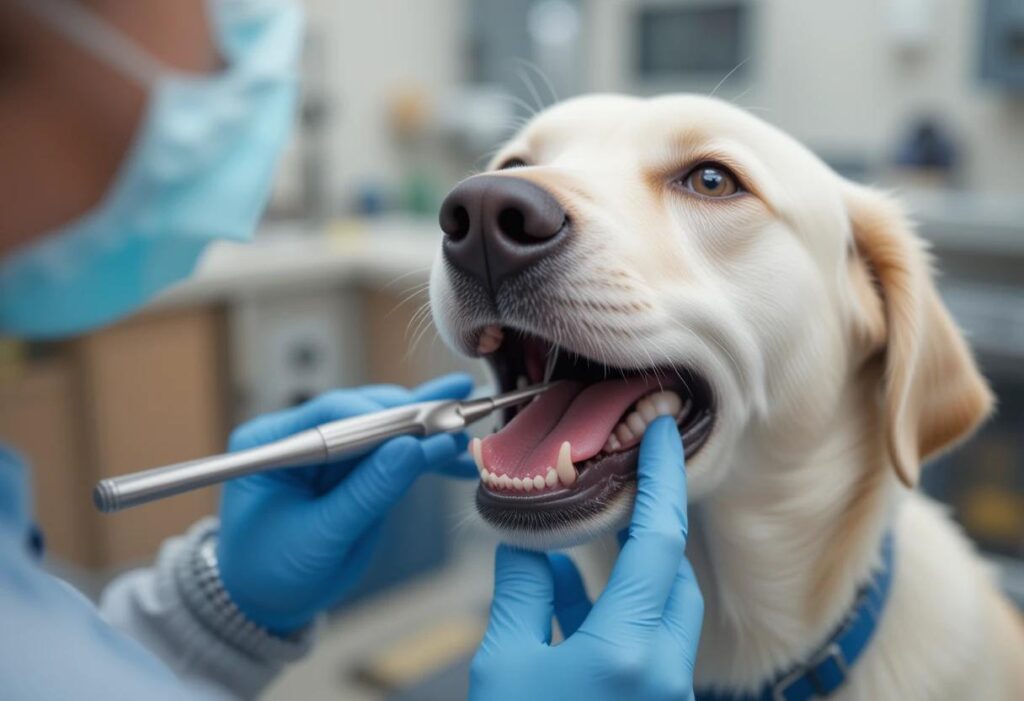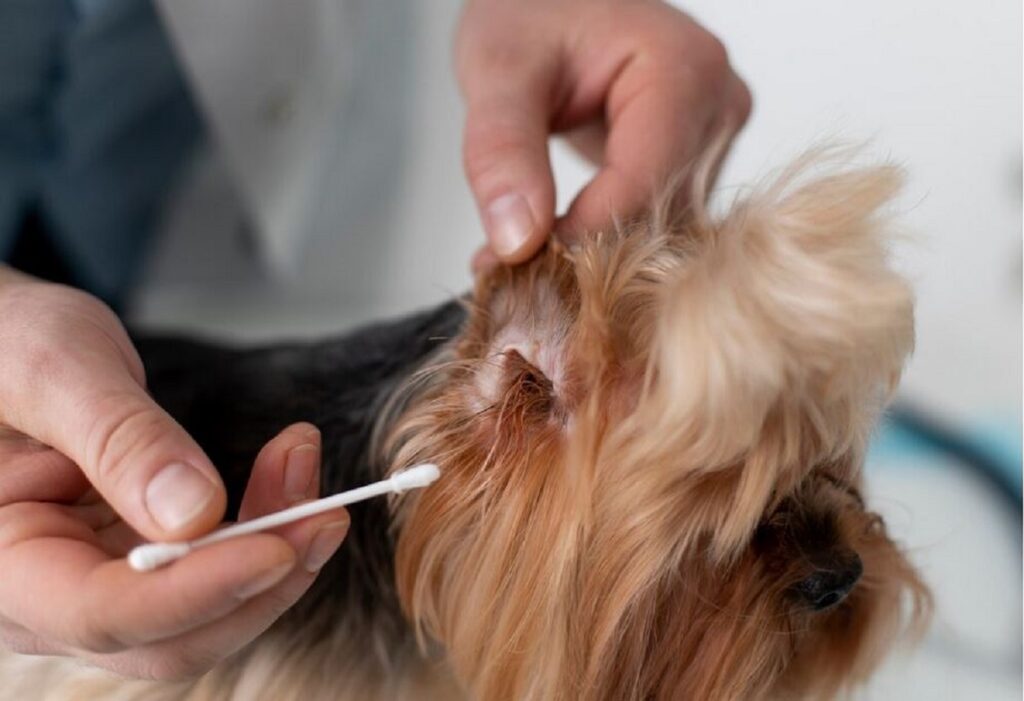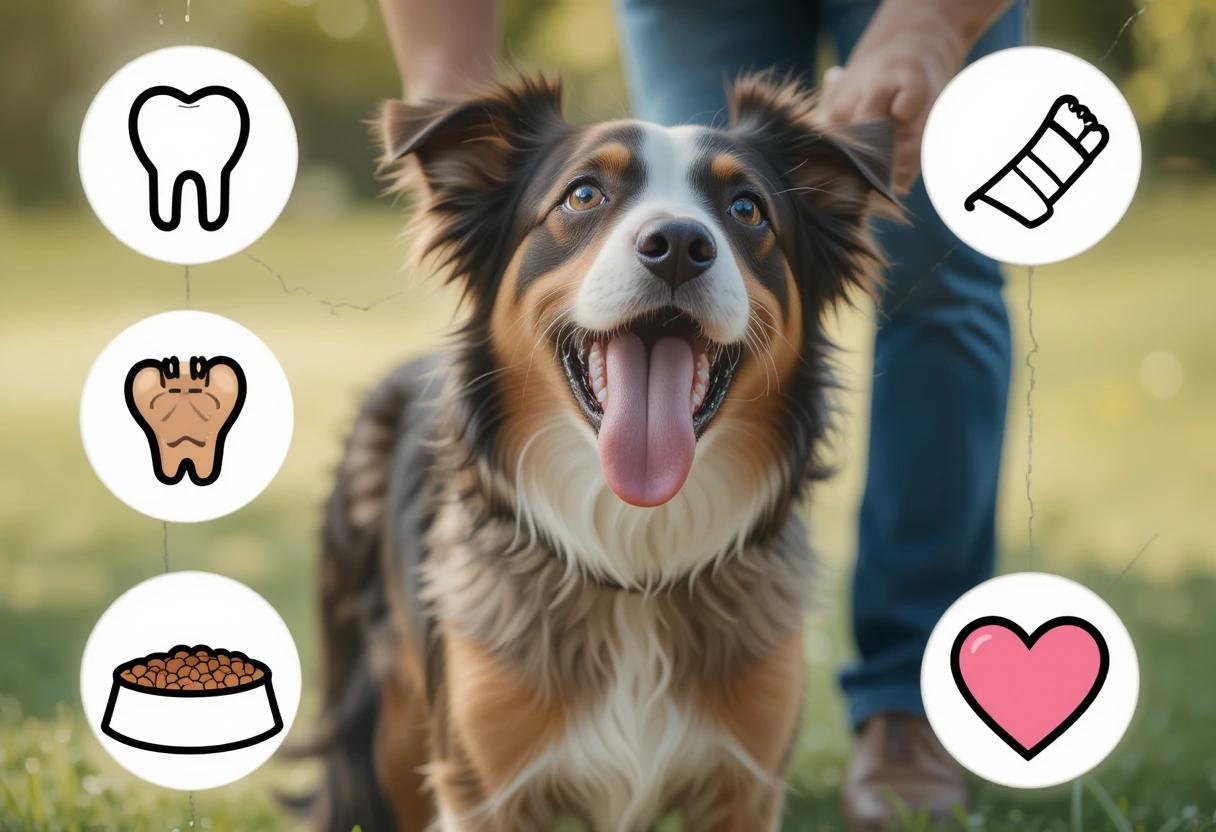Common Health Problems in Dogs
As a dog owner, you want your furry companion to live a long, healthy, and happy life. Dogs, just like humans, can experience various health issues throughout their lives, and it’s essential to know what these common health problems in dogs are. By understanding the signs, causes, and treatments of these issues, you can help prevent them and ensure your dog gets the best care possible. Whether you’re a new dog owner or have had dogs for years, being aware of the most common health problems in dogs can make a huge difference in your pet’s life.
Understanding common health problems in dogs will help you prevent a lot of stressful situations for both you and your pet. It also ensures that you are ready to take action when something is wrong. Whether it’s recognizing the symptoms of joint pain, noticing behavioral changes related to separation anxiety, or identifying skin irritation, the earlier you can detect the problem, the better. That way, you can take steps to help your pet feel better faster.
Table of Contents
1. Obesity
One of the most common health problems facing dogs today is obesity. Similarly to humans, obesity in dogs can lead to a range of other health problems, including joint issues, heart disease, diabetes, and even a shorter lifespan. Consequently, addressing obesity early on is crucial for your dog’s long-term health.
Symptoms:
- Excessive weight gain
- Difficulty breathing or exercising
- Lethargy or decreased activity
- Difficulty moving or jumping
Causes:
Obesity is often the result of a combination of poor diet, lack of exercise, and overfeeding. Moreover, certain breeds are more prone to obesity than others. For example, puppies may become overweight if not properly managed from an early age.
Prevention and Treatment:
- Diet: First and foremost, ensure you are feeding your dog high-quality food that is appropriate for their age, breed, and health condition. Additionally, stick to portion control and avoid giving too many treats, as this can lead to unnecessary weight gain.
- Exercise: Regular walks and playtime are essential for helping your dog burn calories and stay active. Therefore, establishing a daily exercise routine is beneficial. Additionally, engaging in activities that stimulate your dog’s mind can enhance their overall well-being.
- Vet Consultation: If you suspect your dog is obese, it is crucial to consult your veterinarian for a tailored weight management plan that includes a proper diet and exercise routine. This professional guidance can significantly improve your dog’s health.
2. Arthritis and Joint Problems
Arthritis is a common condition in older dogs, particularly in larger breeds. Specifically, it is characterized by inflammation and pain in the joints, which leads to difficulty moving and performing everyday tasks. Furthermore, recognizing early symptoms can significantly improve your dog’s quality of life.
Symptoms:
- One common symptom is limping or stiffness, particularly after exercise.
- Difficulty standing up or lying down
- Reluctance to jump or climb stairs
- Decreased activity levels
Causes:
Arthritis can develop as a result of aging, joint injury, or genetic factors. Additionally, dogs with hip dysplasia, particularly large breeds like German Shepherds or Labrador Retrievers, are more prone to arthritis. Arthritis is just one of the many common health problems in dogs that owners should be aware of as their pet ages.
Prevention and Treatment:
- Weight Management: Keeping your dog at a healthy weight can significantly reduce strain on their joints. As a result, this helps to alleviate pain and maintain mobility. Therefore, regular check-ins with your vet are advisable.
- Exercise: Gentle, low-impact activities like walking or swimming can help maintain joint mobility without putting excessive stress on the joints. Consequently, aim for regular exercise routines tailored to your dog’s needs.
- Joint Supplements: Consult your vet about supplements containing glucosamine and chondroitin, which can promote joint health and potentially slow the progression of arthritis. This additional support can make a difference in your dog’s comfort.
- Medication: In severe cases, anti-inflammatory medications prescribed by the vet can help manage pain and inflammation effectively. Hence, following your vet’s recommendations is crucial for optimal care.
3. Dental Disease
Although dental health is often overlooked in dogs, it is critical to their overall well-being. Gum disease and tooth decay can lead to painful infections, tooth loss, and even systemic issues like heart disease or kidney problems. Consequently, maintaining good dental hygiene is essential for your pet’s health.

Symptoms:
- Bad breath (halitosis)
- Red or swollen gums
- Difficulty eating or chewing
- Drooling or pawing at the mouth
Causes:
Dental disease is primarily caused by a lack of proper oral hygiene. Plaque and tartar buildup can lead to gum infection and tooth decay.
Prevention and Treatment:
- Brushing Teeth: First and foremost, brush your dog’s teeth regularly with a pet-safe toothbrush and toothpaste to prevent plaque buildup. This simple habit can make a significant difference in your dog’s dental health.
- Dental Chews and Toys: Specially designed dental chews and toys can help clean your dog’s teeth naturally. Thus, incorporating these into their routine can be beneficial for their oral health.
- Regular Checkups: Schedule regular dental checkups with your vet, and if necessary, professional cleanings. Regular visits can catch issues early, preventing more serious problems down the line.
- Diet: Some dog foods are formulated to promote dental health by reducing plaque and tartar buildup. Consequently, choosing the right food is an important step in your dog’s overall care.
4. Skin Allergies
Skin allergies are common in dogs and can lead to itching, redness, and discomfort. These allergies can be triggered by food, environmental factors (like pollen or dust mites), or flea bites. Therefore, understanding the triggers is crucial for effective management.
Symptoms:
- Excessive scratching or licking
- Red, inflamed skin or sores
- Hair loss or thinning fur
- Ear infections or paw chewing
Causes:
Food allergies, flea infestations, environmental allergens, and certain chemicals or fabrics can all cause skin reactions in dogs.
Prevention and Treatment:
- Identifying Triggers: Work with your vet to identify the cause of your dog’s allergies. This may involve eliminating certain foods or substances from their environment. Consequently, this proactive approach can lead to better management.
- Flea Control: Use flea preventatives to keep your dog free from flea bites. Thus, maintaining flea control is vital for skin health and comfort.
- Medications: Antihistamines, corticosteroids, or topical creams may be prescribed to reduce itching and inflammation effectively. As a result, your dog can find relief from discomfort.
- Bathing: Regular baths with hypoallergenic shampoos can help soothe irritated skin and provide relief. Therefore, a consistent grooming routine is beneficial.
5. Ear Infections
Additionally, ear infections are common in dogs, especially in breeds with floppy ears, like Cocker Spaniels or Basset Hounds. Moisture, dirt, and bacteria can accumulate in the ears, leading to infections.

Symptoms:
- Excessive scratching of the ears
- Head shaking or tilting
- Foul-smelling discharge from the ears
- Redness or swelling inside the ears
Causes:
Ear infections are caused by bacteria, yeast, or parasites, and they often occur in dogs with excessive ear wax or moisture.
Prevention and Treatment:
- Regular Cleaning: Clean your dog’s ears regularly with a vet-approved ear cleaner to remove dirt and wax buildup. Consequently, this can help prevent infections and keep your dog’s ears healthy.
- Dry Ears: After baths or swimming, make sure to dry your dog’s ears thoroughly to prevent moisture buildup. This simple step is often overlooked but can make a significant difference.
- Vet Treatment: If your dog shows signs of an ear infection, consult a veterinarian for a proper diagnosis and treatment with appropriate medications. Thus, timely intervention is crucial for effective recovery.
6. Gastric Torsion (Bloat)
Gastric torsion, commonly known as bloat, is a life-threatening condition that occurs when the stomach fills with gas and twists on itself. This condition leads to a reduction in blood flow and can result in shock. Therefore, recognizing the signs early is essential for effective treatment.
Symptoms:
- Swollen abdomen
- Restlessness or pacing
- Drooling
- Vomiting or attempting to vomit without success
- Rapid breathing
Causes:
Bloat is more common in deep-chested breeds like Great Danes, Doberman Pinschers, and Boxers. Although the exact cause is often unclear, it is frequently triggered by eating large meals, drinking excessive amounts of water quickly, or engaging in vigorous exercise after meals.
Prevention and Treatment:
- Feeding Small Meals: Feed your dog smaller, more frequent meals to reduce the chance of bloating. This approach can significantly lower the risk.
- Avoid Exercise After Meals: Prevent vigorous activity immediately after meals, as this can exacerbate the risk of bloat. Consequently, a calm post-meal period is advisable.
- Emergency Care: If you suspect your dog has bloat, it is crucial to seek emergency veterinary care immediately. This condition requires surgical intervention to prevent fatal complications.
7. Parasites (Fleas, Ticks, and Worms)
Parasites are a common problem in dogs, especially if they spend time outdoors. Fleas, ticks, and worms can cause discomfort, transmit diseases, and negatively affect your dog’s overall health. Consequently, effective preventive measures are essential.
Symptoms:
- Scratching, biting, or licking the skin
- Visible fleas or ticks on the fur
- Vomiting or diarrhea (in the case of worms)
- Weight loss or a bloated abdomen
Causes:
Parasites are usually transmitted through contact with other infected animals or through contaminated environments like grass or soil. Thus, being vigilant is crucial.
Prevention and Treatment:
- Flea and Tick Preventatives: Use monthly flea and tick preventatives as recommended by your vet. This is a crucial step in protecting your dog from parasites and associated health issues.
- Regular Deworming: Follow a regular deworming schedule as advised by your vet. Regular treatments can help keep your dog healthy and prevent infestations.
- Environmental Control: Keep your dog’s living area clean and regularly treat it for fleas. This proactive approach can help minimize exposure to parasites.
8. Separation Anxiety
Separation anxiety is a behavioral condition where a dog becomes overly distressed when left alone. This can lead to destructive behavior, excessive barking, and other signs of stress. Therefore, understanding and managing this condition is vital for your dog’s well-being.

Symptoms:
- Consequently, excessive barking or howling occurs when the dog is left alone.
- Destruction of furniture or belongings
- Urinating or defecating inside the house
- Pacing or restlessness
Causes:
Separation anxiety can be triggered by changes in the dog’s environment, such as moving to a new home, a change in the owner’s schedule, or the loss of a companion animal. Consequently, these changes can lead to increased stress for your dog.
Prevention and Treatment:
- Gradual Desensitization: Gradually acclimate your dog to being alone by increasing the time they spend by themselves in a controlled manner. This approach can reduce anxiety over time, making them feel more secure when alone.
- Behavioral Training: Work with a professional dog trainer to teach your dog coping mechanisms. Training can help alleviate some of the anxiety associated with being left alone, resulting in a more relaxed dog.
- Medication: In severe cases, anti-anxiety medications may be prescribed by a veterinarian to help manage symptoms. This option should be considered if behavioral strategies alone are insufficient.
Final Thoughts
In conclusion, understanding common health problems in dogs and their prevention is key to providing the best care for your pet. Whether it’s obesity, dental issues, or joint problems, early detection and intervention can help ensure a long and healthy life for your furry friend. By staying informed and proactive, you can ensure your dog enjoys their golden years with health, happiness, and vitality.
Ultimately, caring for your adult pet involves recognizing the signs of potential health issues and taking steps to prevent them. With the right knowledge and resources, you can help your dog lead a fulfilling and healthy life, which not only benefits them but also enhances the bond you share.
Ready to Become the Best Dog Parent Ever?
Is Your Dog Ready to Live Their Best Life?
FAQs
Why does my dog eat so fast?
Dogs sometimes eat too quickly because they’re excited or hungry. It’s a natural behavior from their wild ancestors, who needed to eat fast before other animals came to steal their food. However, eating too fast can cause stomach problems or choking. You can try feeding your dog smaller portions or using a slow-feed bowl to help them eat more slowly.
How can I tell if my dog is sick?
Your dog might show signs of being sick if they are acting differently. For example, if your dog suddenly doesn’t want to eat, is vomiting, has diarrhea, or is very tired, these could be signs of illness. If your dog is showing these symptoms, it’s best to take them to the vet for a check-up.
Why does my dog scratch so much?
If your dog is scratching a lot, it could be because of allergies, fleas, dry skin, or even a skin infection. Sometimes, it’s just an itchy spot, but if your dog is scratching all the time or causing sores, it’s a good idea to talk to the vet. They can figure out if there’s a bigger problem and help your dog feel better.
Can dogs get allergies like humans?
Yes! Just like people, dogs can have allergies. They might be allergic to food, pollen, dust mites, or even flea bites. If your dog is sneezing, scratching, or has red, itchy eyes, it could be an allergy. A vet can help figure out what’s causing it and how to treat it.
How can I keep my dog’s teeth clean?
Brushing your dog’s teeth regularly is the best way to keep them clean. You can use special dog toothpaste and a toothbrush to gently brush their teeth. If brushing is hard, you can also give them dental chews or special food that helps keep their teeth clean. Regular vet check-ups will also help catch any dental problems early.
Why does my dog shake?
Dogs can shake for many reasons. Sometimes they’re cold, scared, or nervous. Other times, shaking might be a sign of illness, like pain or nausea. If your dog is shaking a lot and it doesn’t seem to be because of something obvious, like cold weather, it’s best to check with the vet to rule out any health problems.
What should I do if my dog eats something they shouldn’t?
If your dog eats something they shouldn’t, like chocolate, grapes, or a toxic plant, it’s important to act quickly. Call your vet or an emergency pet clinic right away for advice. Some things dogs eat can be really dangerous, so getting help fast is important.
How can I stop my dog from barking too much?
Barking is a way dogs communicate, but if your dog is barking too much, it can be annoying. Try to figure out what’s causing the barking. Is your dog bored, scared, or just excited? Sometimes training, like teaching your dog to be quiet on command, can help. Also, making sure your dog gets enough exercise and mental stimulation can help reduce excessive barking.
Can I make homemade food for my dog?
Yes, you can make homemade food for your dog! Many pet owners prefer cooking for their dogs because it allows them to know exactly what their dog is eating. However, it’s important to make sure the food is balanced and meets all of your dog’s nutritional needs. Before starting a homemade diet, it’s best to consult with your vet to ensure your dog gets the right amount of protein, fats, vitamins, and minerals.
What are some natural remedies for my dog’s itchy skin?
If your dog has itchy skin, some natural remedies may help. You can try oatmeal baths, which soothe the skin, or coconut oil, which can moisturize and reduce itching. Aloe vera gel can also be applied to irritated areas to calm the skin. Be sure to check with your vet before using any natural remedies to ensure they’re safe for your dog.
What natural ingredients can I use to boost my dog’s immune system?
Natural ingredients like turmeric, ginger, and bone broth can be used to support your dog’s immune system. Turmeric has anti-inflammatory properties, while ginger helps with digestion and overall health. Bone broth is rich in nutrients and can be a great addition to your dog’s diet. However, consult your vet before adding any new ingredients to make sure they’re safe for your dog’s specific needs.

